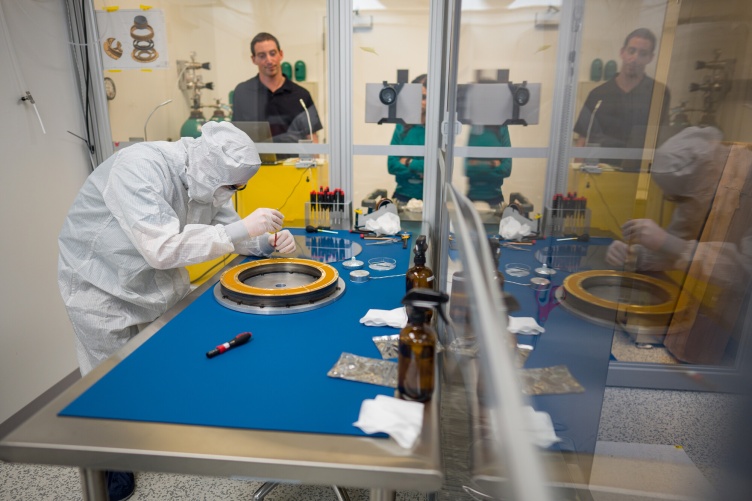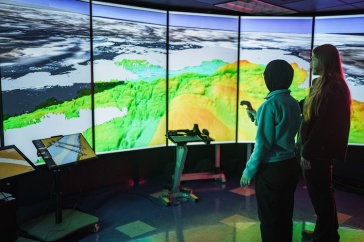
Space Science Center researchers work on a NASA-funded project in a clean room at UNH.
UNH closed fiscal year 2023 with $210 million in competitive research funding, supporting projects that expand our understanding of the world and improve lives in New Hampshire and beyond. The funding, from federal agencies, state collaborators, business and industry and private foundations, is growing steadily and has doubled in less than a decade.
“These dollars signal confidence in our capacity to find solutions to some of the world’s most vexing issues.”
“Scholars from every school, college, center and discipline across the university contribute to this steady increase in research funding,” says Marian McCord, UNH senior vice provost for research, economic engagement and outreach. “These dollars signal confidence in our capacity to find solutions to some of the world’s most vexing issues.”
Among the projects funded:
- An interdisciplinary National Institutes of Health-funded project that aims to develop social assistive robots to help seniors with dementia age in place;
- NASA-funded research to better understand the nature of gamma ray bursts, some of the largest and most distant releases of energy in the known universe;
- An initiative by NH GRANIT to map broadband coverage in the state of New Hampshire, funded by a $1 million contract from the N.H. Department of Business and Economic Affairs;
- Understanding the effects of climate change on Gulf of Maine ecosystems, funded by the National Oceanic and Atmospheric Administration (NOAA) and the Office of Naval Research;
- An exploration of how thawing permafrost in the Arctic could affect lakes, streams and ultimately climate change, funded by the U.S. Department of Energy;
- A workshop for 72 K-12 teachers, funded by the National Endowment for the Humanities, to extend the findings of UNH’s Great Bay Archaeological Survey to students nationwide.
The Institute for the Study of Earth, Oceans, and Space (EOS), UNH’s largest research center, received $124.6 million, the largest share of external funding in FY23. The College of Health and Human Services received $21 million. Funding to the College of Engineering and Physical Sciences was $17.7 million; the College of Life Sciences and Agriculture received $10.7 million; $8.7 million went to the College of Liberal Arts, $5.5 million to UNH Cooperative Extension, $1.7 million to UNH Manchester and $1.1 million to Paul College and the Small Business Development Center.
The federal government was the largest source of funding, sending $141.8 million to UNH, led by NASA ($66.9 million), NOAA ($14.9 million), the National Science Foundation ($15.7 million) and the Department of Health and Human Services ($13.4 million).
In addition, competitive grants and contracts from various New Hampshire state agencies ($8.7 million) support UNH researchers who expand the state’s capacity to address issues in health, transportation, the environment and more. Industry partners tapped UNH research expertise to advance their business goals with $10.8 million.
Expanding competitive funding for research is essential to maintaining the Carnegie Classification R1 status, which puts UNH in the top tier of research universities nationwide, and advancing an institutional goal to become a top-25 public university.
External grants and awards fund specific research projects and are carefully accounted for through a robust compliance process mandated by grantors. In addition to major scientific instruments and laboratory supplies, a significant share of external funding supports scholarships and salaries for graduate and undergraduate students, postdoctoral researchers and faculty members. The new knowledge generated through research projects improves education by bringing new ideas and theories into the classroom, deepens understanding of our world and beyond, solves local and global challenges and drives economic development.

-
Written By:
Beth Potier | UNH Marketing | beth.potier@unh.edu | 2-1566
















































